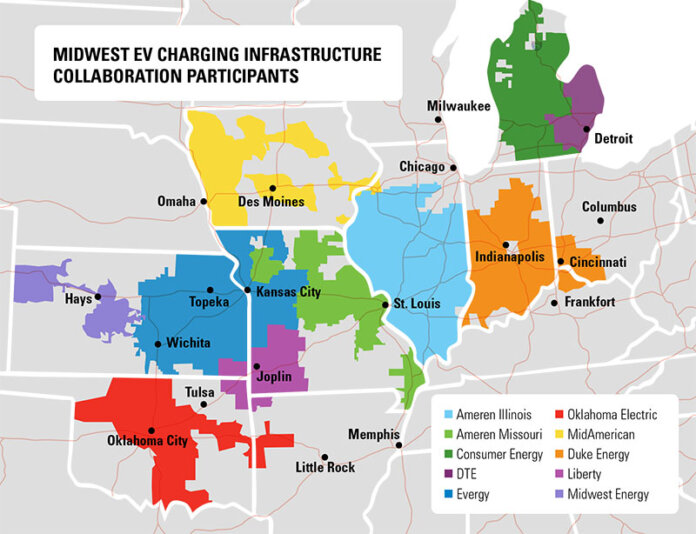Last year, Ameren announced a first-of-its-kind collaboration among energy companies that committed in good faith to build an extensive network of electric vehicle (EV) charging stations across the Midwest. Duke Energy, MidAmerican, Liberty and Midwest Energy say they are joining the existing group of six utilities to support the growing use of EVs.
With this network of stations, EV drivers will be able to travel 1,200 miles from Detroit to Colorado – and points in between – with confidence there will be ample locations to recharge along the way.
The automotive industry expects EV adoption to grow from 1.5 million to 18.7 million vehicles by 2030. To meet the demand, an estimated 9.6 million public EV charging stations will be needed. Only about 100,000 stations are in service today, which is why Midwest energy companies are joining forces to support cleaner transportation.
The four energy companies, serving customers in Arkansas, Illinois, Indiana, Iowa, Kansas, Kentucky, Missouri, Ohio and Oklahoma, are the newest companies to sign the memorandum of cooperation already in place among Ameren Illinois, Ameren Missouri, Consumers Energy (Michigan), DTE Energy (Michigan), Evergy (Missouri and Kansas) and Oklahoma Gas and Electric. Midwest Energy is the first member-owned electric cooperative to join the agreement with investor-owned utilities.
“In the Midwest, large cities are connected by vast rural areas, so drivers spend more time on the road and travel longer distances,” says Richard Mark, chairman and president of Ameren Illinois. “The EV movement is happening and we’re proud to be part of a coalition that will help to provide motorists with convenient and economical charging options throughout the region.”
Ameren has its own plans to be part of the EV revolution. By 2030, Ameren intends for 100% of its new light-duty vehicle purchases to be electric. In addition, Ameren will electrify 35% of its overall vehicle fleet, including light-duty, medium-duty, heavy-duty, forklifts and ATV/UTV by 2030.
Utility programs supporting the memorandum of cooperation are subject to regulatory approvals and aim to have the charging infrastructure in place by the end of 2022.





